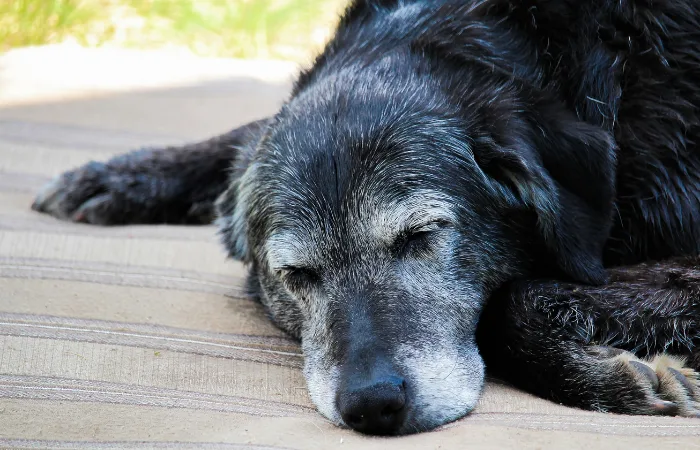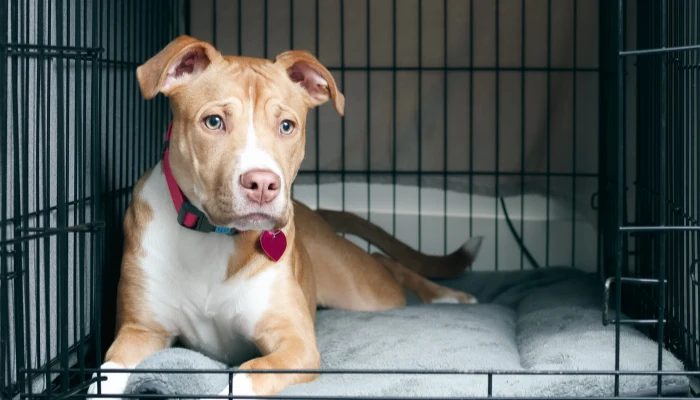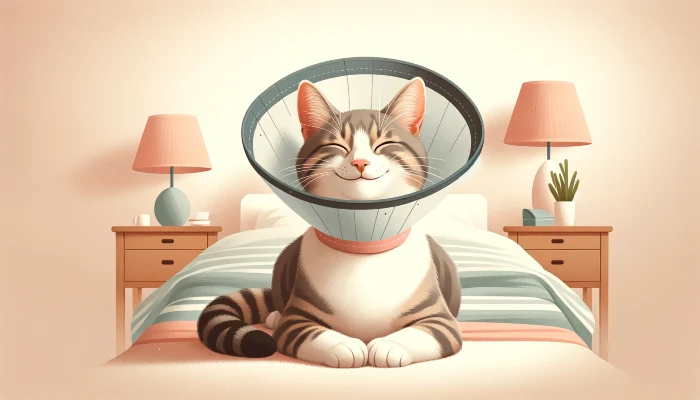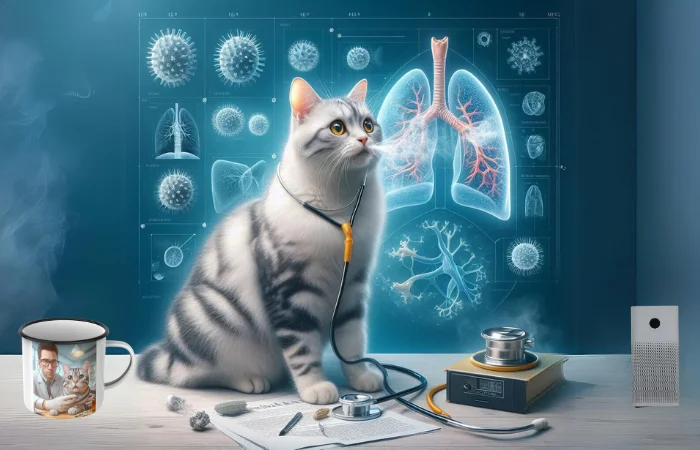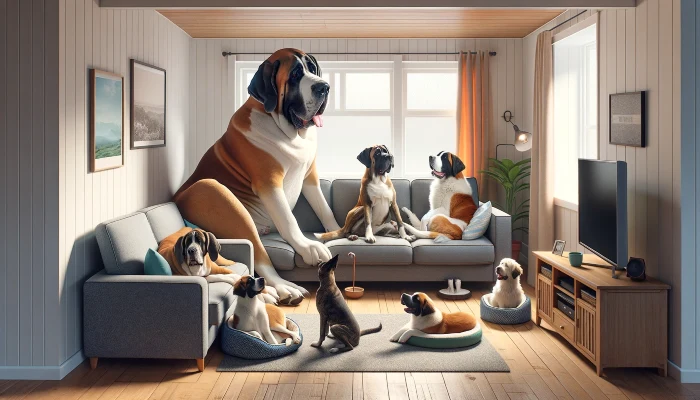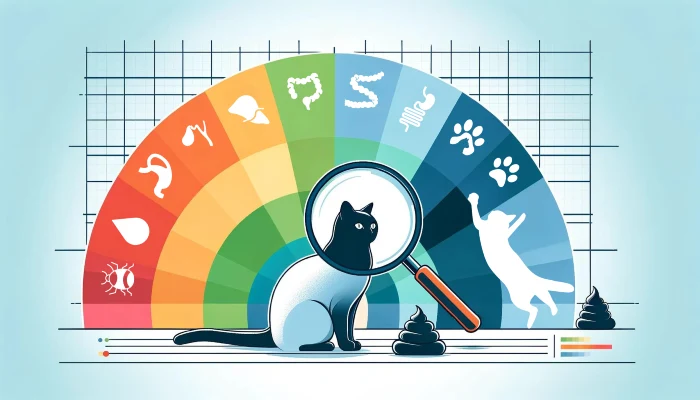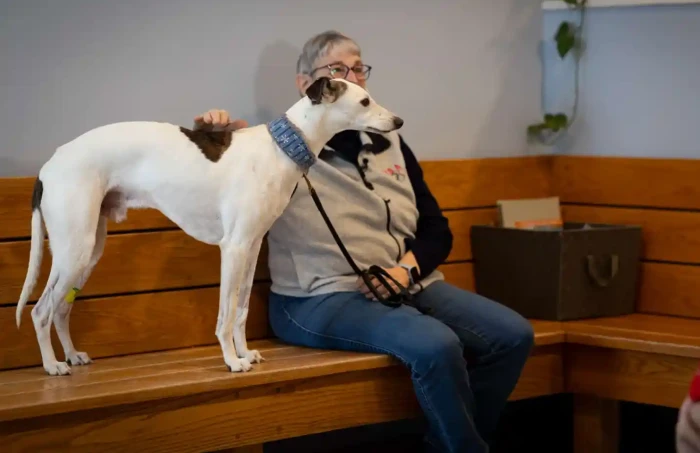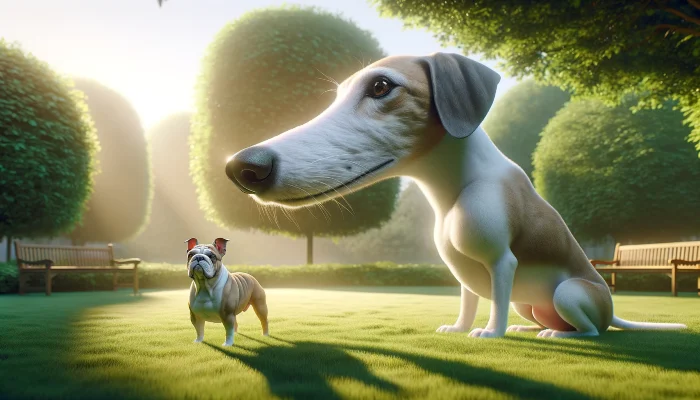As our dogs enter their golden years, they undergo many of the same health changes as humans. Just as we need to pay extra attention to our own health as we age, it’s crucial to monitor our senior pets for signs of potential health issues. An early diagnosis can make all the difference, improving both the quality and duration of your beloved pet’s life.
In this article, we’ll discuss several common health problems in older pets, highlighting the symptoms associated with each along with the most statistically susceptible breeds.
Please keep in mind that the breeds listed for each issue is just a matter of data. It doesn’t preclude your dog’s breed, so make sure to keep an eye out and communicate with your veterinarian as your dog gets older.
8 Most Common Health Issues In Older Dogs
1. Cancer
Cancer is prevalent in older pets. While the exact causes vary, age is a significant risk factor.
Symptoms to watch for:
- Unusual lumps or bumps that grow or change shape
- Sudden weight loss or loss of appetite
- Wounds that don’t heal
- Difficulty breathing or chronic cough
- Persistent lameness or stiffness
- Odd-smelling discharge or odor
Certain breeds are predisposed to specific types of cancers, including…
- Bernese Mountain Dogs
- Boxers
- Flat-Coated Retrievers
- Golden Retrievers
- Rottweilers
2. Kidney Issues
The kidneys play a vital role in filtering toxins. As pets age, their kidney function can decline, leading to various issues.
Symptoms to watch for:
- Increased thirst and urination
- Decreased appetite and weight loss
- Vomiting or diarrhea
- Dry coat or flaky skin
- Lethargy
While any dog can develop kidney issues, some breeds have a genetic predisposition such as…
- Bull Terriers
- Dalmatians
- English Cocker Spaniels
- German Shepherds
- Samoyeds
3. Incontinence

Incontinence, or the inability to control urination, can be a problem in senior pets due to weakened bladder muscles or other underlying health issues.
Symptoms to watch for:
- Dribbling urine or wet spots where the pet was lying down
- Frequent licking of the genital area
- Urine odor in the pet’s sleeping areas
This issue can be seen in many breeds, but is more common in some due to size and anatomy, like…
- Beagles
- Cocker Spaniels
- Doberman Pinschers
- Old English Sheepdogs
- Siberian Huskies
4. Dementia and Cognitive Dysfunction
Just like humans, older pets can develop cognitive disorders that affect their memory, perception, and learning.
Symptoms to watch for:
- Confusion or disorientation, even in familiar places
- Changes in sleep patterns (e.g., restlessness at night)
- Repetitive behaviors, such as pacing
- Forgetting commands or trained behaviors
- Decreased interest in play
All senior dogs can experience cognitive decline, but the following breeds are more at risk:
- Beagles
- Boxers
- Cocker Spaniels
- Dachshunds
- German Shepherds
5. Heart Disease
As pets age, the risk of heart disease increases, especially in certain breeds.
Symptoms to watch for:
- Coughing, especially at night
- Difficulty breathing or rapid breathing
- Reduced desire to exercise
- Swollen abdomen or weight loss
- Fainting or collapsing
Certain breeds are more predisposed to heart conditions, including:
- Boxers
- Cavalier King Charles Spaniels
- Dachshunds
- Doberman Pinschers
- Miniature and Toy Poodles
6. Diabetes
Diabetes results from an inability to regulate blood sugar levels properly. This condition is manageable with early diagnosis and appropriate care.
Symptoms to watch for:
- Excessive thirst and urination
- Increased appetite but weight loss
- Cloudy eyes (in dogs)
- Thinning, dry, or dull coat
Some breeds have a higher risk of diabetes due to genetic factors like…
- Australian Terriers
- Bichon Frises
- Dachshunds
- Miniature Schnauzers
- Samoyeds
7. Arthritis
Arthritis, or inflammation of the joints, is common in older pets due to wear and tear over the years.
Symptoms to watch for:
- Limping or difficulty moving
- Stiffness, especially after resting
- Swollen joints or a hunched back
- Reduced activity or reluctance to play
While arthritis can affect any dog, especially with age, some breeds are more prone due to their size and build including the following:
- Dachshunds
- Labrador Retrievers
- German Shepherds
- Golden Retrievers
- Rottweilers
8. Vision and Hearing Loss
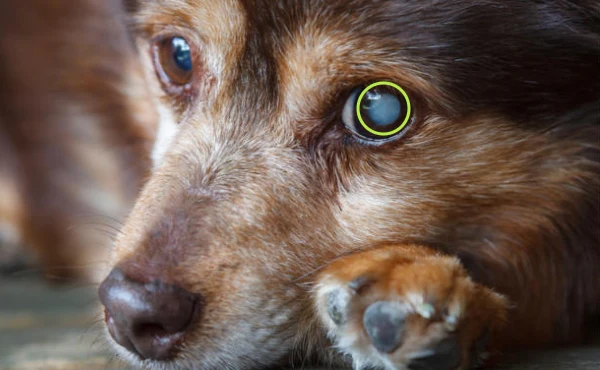
With age, pets may lose their sharpness in vision and hearing, affecting their daily routines.
Symptoms to watch for:
- Bumping into objects or furniture
- Startling easily or not responding to calls
- Cloudy or hazy eyes
- Excessive earwax or debris in the ears
Age-related vision and hearing loss can affect all breeds, but some are genetically predisposed to early or more severe issues, such as…
- Dalmatians (hearing)
- Boston Terriers (vision)
- Cocker Spaniels (both)
- Maltese (vision)
- West Highland White Terriers (both)
Our pets have been loyal companions through many of life’s ups and downs. As they enter their twilight years, it’s our turn to ensure they’re comfortable, happy, and healthy.
By knowing the signs of common ailments that affect senior pets, you can take prompt action, giving your beloved furry friend the best possible care in their golden years.
More To Discover
- A Comprehensive Guide to Understanding and Maintaining Your Dog’s Ear Health
- 7 Fun Activities You Can Do With Your High Energy Dog
- The Paradox of Popularity: Exploring the Appeal of Dog Breeds with Innate Health Problems
- Blue Ridge Beef Expands Pet Food Recall in 16 States Over Salmonella and Listeria Risks
Regular check-ups and consultations with your veterinarian are crucial, as they can provide personalized advice and treatments tailored to your pet’s unique needs.
Remember, the love and care we show our senior pets today will echo in the joyful moments we share with them tomorrow.








